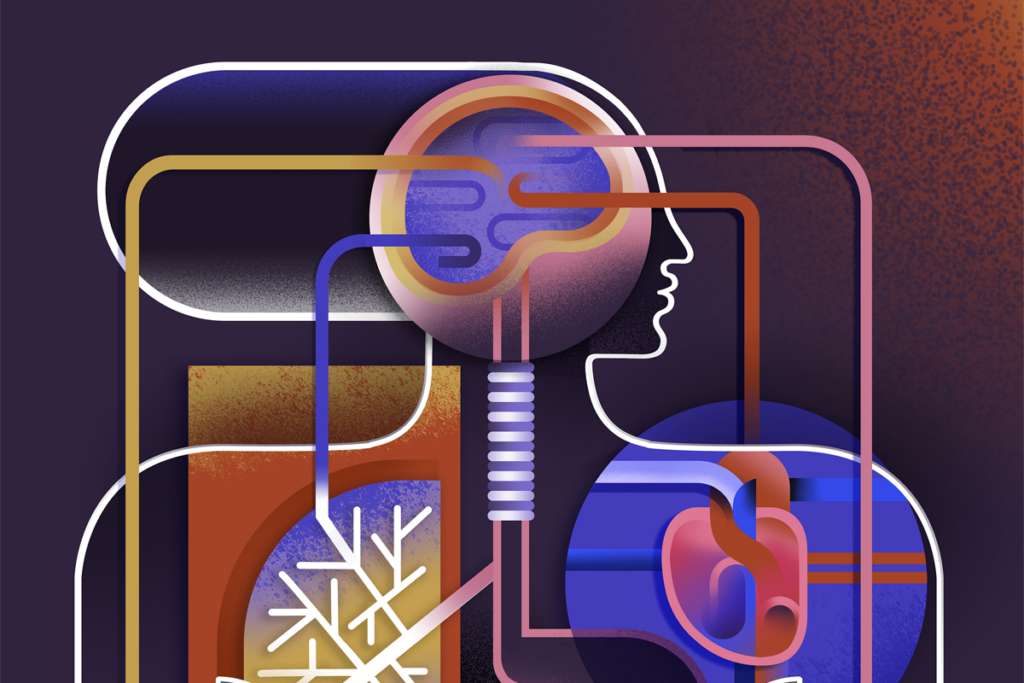Genetics: Environment modulates autism symptoms in mice
Mutant mice with autism-like behaviors have fewer behavioral impairments when provided with toys, exercise wheels and contact with other mice, than do those that live in typical laboratory cages, according to a study published 5 April in Human Molecular Genetics.
Mutant mice with autism-like behaviors have fewer impairments when provided with toys, exercise wheels and contact with other mice, than do those that live in typical laboratory cages, according to a study published 5 April in Human Molecular Genetics1.
The results show how environment can modulate the effects of gene variants, the researchers say.
An extra copy of the 17p11.2 chromosomal region in humans leads to Potocki-Lupski syndrome, a neurodevelopmental disorder characterized by intellectual disability and some features of autism. In a 2003 study, researchers engineered mice carrying a 17p11.2 duplication. These mice have symptoms that are similar to the disorder’s, including motor deficits, problems with learning and memory, and anxiety2.
In the new study, researchers further characterized these mice and showed that they exhibit behaviors that resemble many of the core features of autism. The mutant mice are less likely than controls to recognize mice they are familiar with and are more aggressive toward others, suggesting they have social deficits. Pups separated from their mothers cry out less often than do control pups, and adult mice poke their noses into holes in their cages more often than do controls, suggesting they have deficits in language as well as repetitive behaviors.
The researchers also compared the behaviors of mutant mice held in typical laboratory cages with those that live in cages that are larger, contain exercise wheels and chew toys, and include huts to encourage group sleeping.
Studies have shown that enriched cages can alleviate symptoms of Rett syndrome in mouse models. And, control mice raised in sparse cages have neurons that more closely resemble those of mice that model fragile X syndrome than do the neurons of mice raised in enriched cages, highlighting how important stimulation is during development.
Potocki-Lupski mice raised in enriched cages for about five to nine weeks after weaning are better at recognizing other mice and more likely to associate a sound with a foot shock than mice held in normal cages, suggesting improvements in social deficits and learning and memory. They also have less anxiety and better motor coordination, the study found.
The results indicate that different environments can modulate the impact of genetic background, and provide support for the role of behavioral interventions as a treatment for neurodevelopmental disorders, including autism.
Future studies will aim to parse out which environmental factors might be responsible for certain behavioral improvements, the researchers say.
References:
1: Lacaria M. et al. Hum. Mol. Genet. Epub ahead of print (2012) PubMed
2: Walz K. et al. Mol. Cell Biol. 10, 3646-3655 (2003) PubMed
Recommended reading
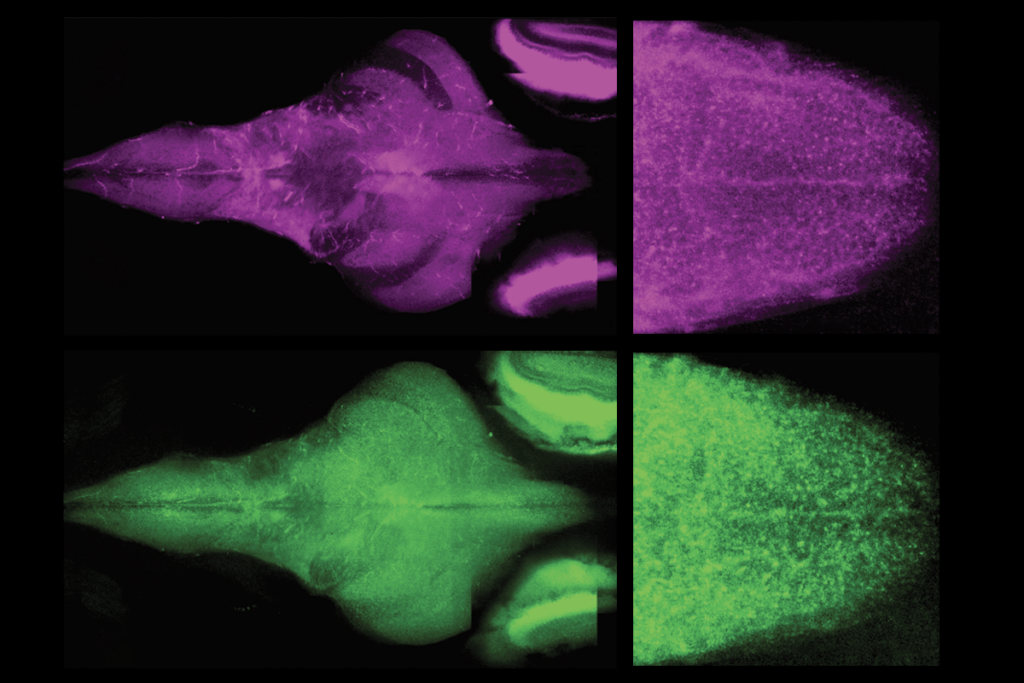
Pangenomic approaches to the genetics of autism, and more

Latest iteration of U.S. federal autism committee comes under fire
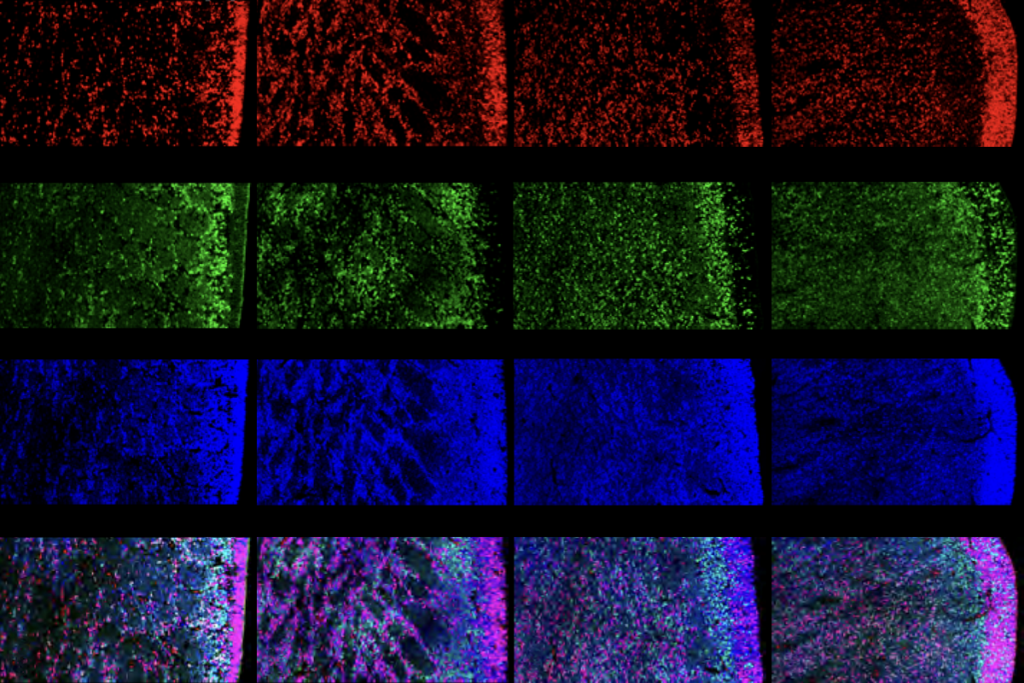
‘Tour de force’ study flags fount of interneurons in human brain
Explore more from The Transmitter
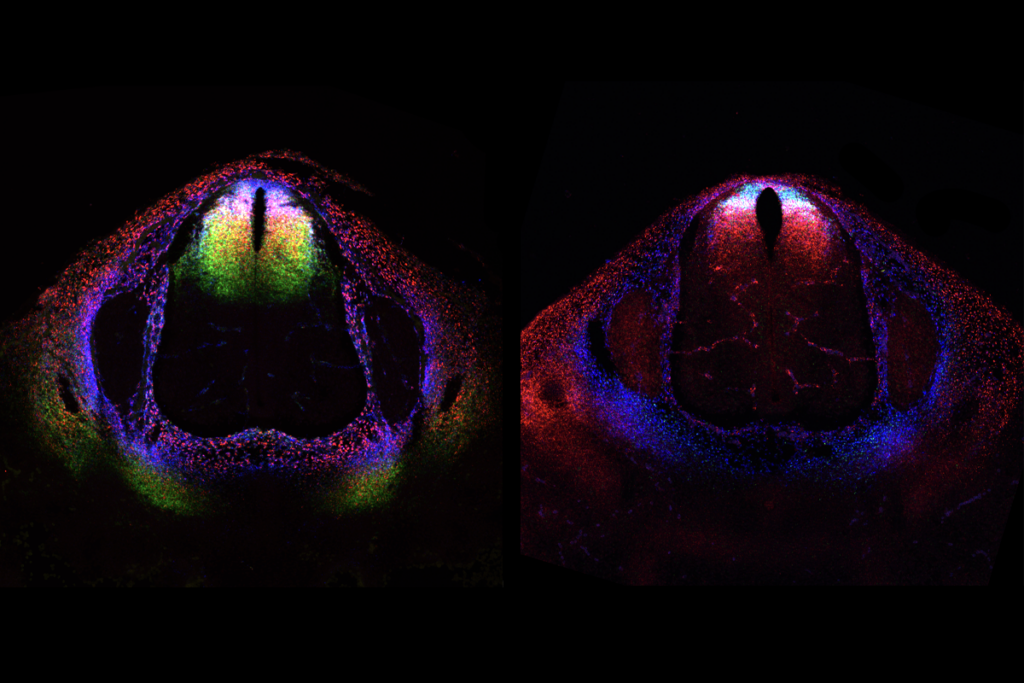
Cell atlas cracks open ‘black box’ of mammalian spinal cord development
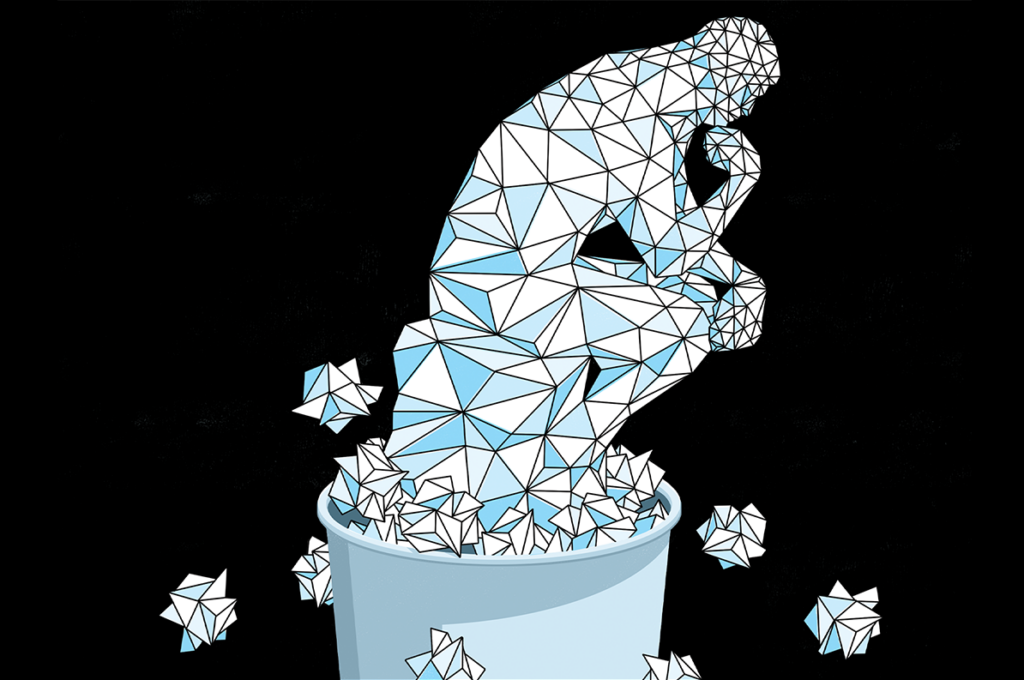
Betting blind on AI and the scientific mind
